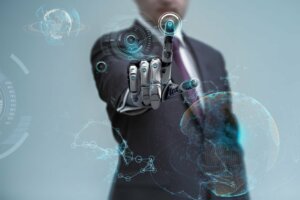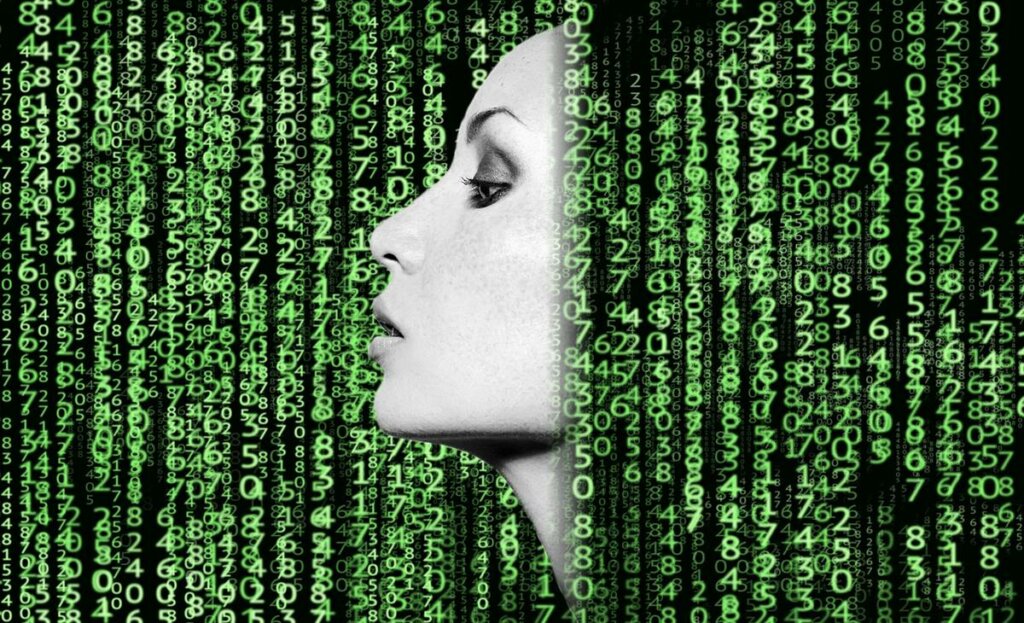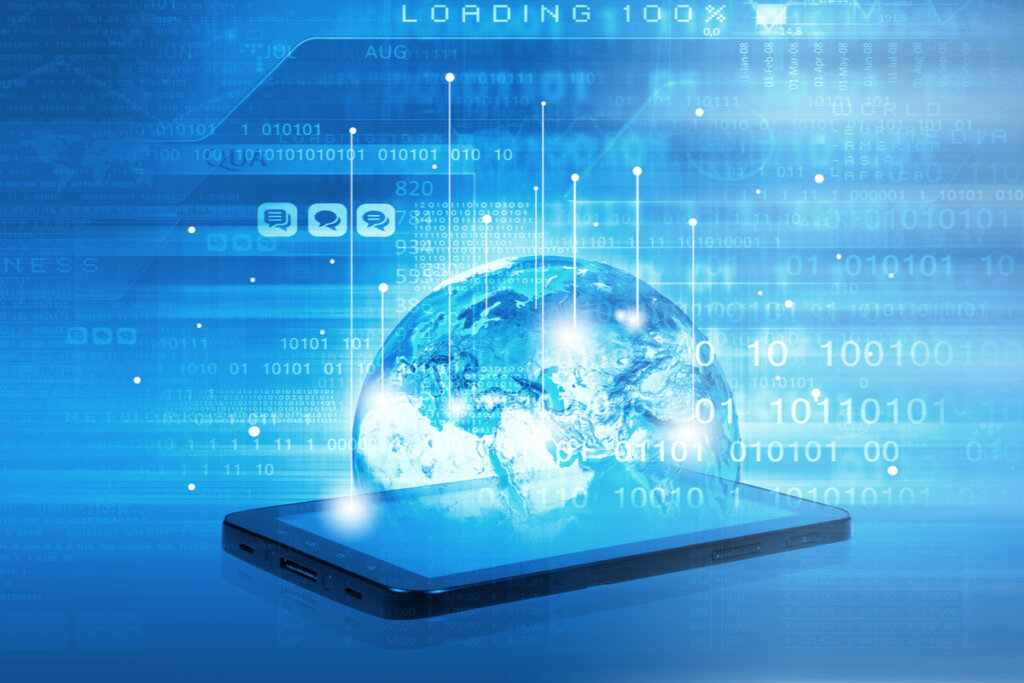The Fourth Industrial Revolution: What Is It and How Will It Affect Us?


Written and verified by the psychologist Valeria Sabater
The fourth industrial revolution has arrived. It’s defined by its interconnectivity, intelligent automation, and a confluence between the physical, digital, and biological universes. In fact, we entered this new stage fairly recently and new terms are added every day. For example, ‘metaverse’, ‘transhumanism’, and ‘biotechnology’.
It was in 2015 that a team of scientists developing a high-tech strategy for the German government first introduced the concept of the fourth industrial revolution. Later, Klaus Schwab, Executive President of the World Economic Forum (WEF), officially presented it in 2016. He highlighted a specific idea that resonated with his audience.
He spoke of the need to master this advance in order that hardware, software, and biology always act for the good of humanity, not only to boost world economies. Furthermore, he claimed that this latest revolution must act as a mechanism of advancement for all nations and peoples.
We’re about to enter a technological revolution capable of changing our lifestyle as we understand it.

The fourth industrial revolution
The experts keep insisting on one specific message. That we’re on the brink of a technological revolution that’ll change the way we live, work, and interact. However, this doesn’t have to be bad. In fact, it just needs to be anticipated and handled well so that it becomes a tool for progress and well-being. Nevertheless, the problem is that these changes will come extremely quickly.
As we’ve already mentioned, it was in 2016 when the starting line was set for the fourth industrial revolution. Articles like those published in Forbes magazine echoed this news. Industry 4.0, as they called it, involves the combination of cyber-physical systems, the internet of things, and the internet of systems.
They explained that this poses a risk on several levels. The first is that many companies and countries are unable or unwilling to adapt to this progressive change. Another obvious danger is that some governments don’t use this technology in an ethical way. Because, as we well know, all forms of progress aren’t always used for the common good. As a matter of fact, sometimes, the reality can be quite to the contrary.
Let’s take a closer look.
Industry 4.0 Feature
We mentioned earlier, Klaus Schwab, a German economist, businessman and founder of the World Economic Forum. In his book, The Fourth Industrial Revolution, he explains what this advance consists of. This new stage that’s only just begun.
- The first industrial revolution used the energy of water and steam to mechanize production.
- The second great revolution used electric power.
- The arrival of the third revolution is better known to us. In this, both electronics and information technology changed our way of understanding the world and also of producing.
The fourth industrial revolution is still in the making. However, we can intuit that a vast mosaic of areas and disciplines will be integrated into it. These would be the most notable:
- Cyber-physical systems. Computer systems capable of automating a large number of processes.
- The internet of things. Digital interconnection of everyday objects with the internet. For example, automated houses, clothing capable of monitoring our health, etc.
- Artificial intelligence.
- The robotic.
- Cognitive computing.
- Genetic engineering to prevent disease.
- Nanotechnology, biotechnology, materials science, energy storage, quantum computing, etc.
One of the main effects that the fourth industrial revolution will bring is the precariousness of employment. Indeed, automation in companies will cause a large number of jobs to be lost.

How will the impending revolution affect us?
The fourth industrial revolution will transform the way in which we view our lives. There’ll be both great advantages and disadvantages. One of them will undoubtedly be the fact that in intelligent and automated factories less and less manpower will be required.
Of course, highly qualified workers will always be needed. As a result, the labor market will advance, creating greater gaps between those who are trained in new technologies and those who aren’t. Not to mention the fact that artificial intelligence will replace many jobs.
This will mean that fewer and fewer people will be needed to occupy positions that machines or chatbots can fill. Furthermore, it’s undeniable that the omnipresence of digital technologies will permeate every area of our lives.
Effects of the fourth industrial revolution
All of the above will have an obvious psychological cost.
- Our way of working, enjoying leisure, and interacting will be mediated by technologies such as augmented reality or the metaverse. Therefore, the connection between people will be more virtual than physical. This can increase feelings of loneliness and promote a lack of emotional bonding.
- The arrival of the internet of things will affect our privacy. Our homes will be scenarios inhabited by smart devices that anticipate our needs. This requires that they observe and analyze us. In addition, we may become victims of cybercrime.
- Transhumanism will mean that many of our cognitive abilities will be enhanced. Furthermore, technology will have the capacity to repair neurological damage and genetic engineering will eliminate certain diseases and prolong life. Here, great ethical, psychological, and even philosophical dilemmas will appear that we haven’t yet even begun to address.
Indeed the fourth industrial revolution has arrived. However, it must be geared towards progress that reflects our highest values. Only in this way, will we shape a more just society, one in which everyone benefits.
All cited sources were thoroughly reviewed by our team to ensure their quality, reliability, currency, and validity. The bibliography of this article was considered reliable and of academic or scientific accuracy.
- Marr, Bernard. “Why Everyone Must Get Ready For The 4th Industrial Revolution”. Forbes. Retrieved 14 February 2018.
- Lee, MinHwa; Yun, JinHyo; Pyka, Andreas; Won, DongKyu; Kodama, Fumio; Schiuma, Giovanni; Park, HangSik; Jeon, Jeonghwan; Park, KyungBae; Jung, KwangHo; Yan, Min-Ren (21 June 2018). “How to Respond to the Fourth Industrial Revolution, or the Second Information Technology Revolution? Dynamic New Combinations between Technology, Market, and Society through Open Innovation” Journal of Open Innovation: Technology, Market, and Complexity. 4 (3): 21. doi:10.3390/joitmc4030021
- Imkamp, D., Berthold, J., Heizmann, M., Kniel, K., Manske, E., Peterek, M., Schmitt, R., Seidler, J., and Sommer, K.-D.: Challenges and trends in manufacturing measurement technology – the “Industrie 4.0” concept, J. Sens. Sens. Syst., 5, 325–335, https://doi.org/10.5194/jsss-5-325-2016
- Philbeck, Thomas; Davis, Nicholas (2018). “THE FOURTH INDUSTRIAL REVOLUTION: SHAPING A NEW ERA”. Journal of International Affairs. 72 (1): 17–22. ISSN 0022-197X
This text is provided for informational purposes only and does not replace consultation with a professional. If in doubt, consult your specialist.








